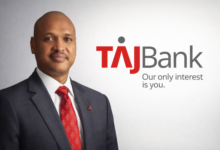EFCC: Corrupt Politicians Now Launder Stolen Billions Through Cryptocurrency

In a revealing development that underscores the evolving face of financial crime, the Economic and Financial Crimes Commission (EFCC) has warned that corrupt Nigerian politicians are now stashing illicit wealth in cryptocurrencies to avoid detection and prosecution.
EFCC Chairman Mr. Ola Olukoyede, speaking through the agency’s Acting Zonal Director in Ibadan, Hajiya Hauwa Ringim, at the African Union (AU) Anti-Corruption Day event in Ibadan on Thursday, noted that virtual assets—especially crypto wallets—have become the preferred laundering channel for looters of public funds.
“Digital assets may not be criminal by nature, but when deployed for concealment of illegal funds, they pose a significant threat to national security and economic stability,” Olukoyede said.
A New Front in Nigeria’s Anti-Corruption Battle
The EFCC’s disclosure signals a strategic pivot in anti-corruption enforcement as illicit finance migrates from physical bank accounts and offshore havens into the borderless world of blockchain and virtual currencies.
Olukoyede stressed that while cryptocurrencies are legitimate financial instruments, their anonymity, decentralised nature, and ease of transfer have made them tools of choice for money launderers, cybercriminals, and corrupt political actors.
According to him, the EFCC has recorded a surge in:
- Crypto wallet hoarding of unexplained wealth
- Fraudulent digital investment schemes
- Ponzi operations disguised as crypto ventures
- Cross-border transactions designed to obscure money trails
He cited the Commission’s landmark bust of the CBEX investment scam as a case study in successfully tracing and prosecuting digital financial crimes.
Crypto as the New Swiss Bank Account
The warning from Nigeria’s top anti-graft agency comes amid growing global concern that cryptocurrencies are becoming the modern equivalent of offshore tax havens—but far harder to track and regulate.
With local and international anti-money laundering frameworks still catching up to the rapid evolution of blockchain technology, the EFCC is stepping up its cyber forensics, staff training, and international intelligence collaboration to adapt to this digital threat.
“We’re not just chasing fraudsters—we’re evolving with the tools they’re using,” said Olukoyede. “The fight against corruption must now extend to the digital asset ecosystem.”
Fraud Warning for Nigerian Investors
Olukoyede also issued a public advisory, warning citizens and investors to be wary of too-good-to-be-true digital investment platforms, many of which are fronts for crypto-based Ponzi schemes.
“Most digital scams succeed not because the fraudsters are sophisticated, but because victims fail to carry out basic due diligence,” he said.
This warning was echoed by Professor Oludayo Tade, a criminologist at the University of Ibadan, who cautioned Nigerians to avoid investment schemes that promise unrealistic returns—especially anything above 30–50% in a week.
“Fraudsters increasingly leverage the image of influencers, celebrities, and even religious leaders to build fake credibility. Digital fraud now rides on social proof,” he warned.
A Call to Action for Regulators and the Public
The speakers emphasized that fraud prevention is more effective than late-stage enforcement. They called on:
- Regulators to intensify public education and inter-agency collaboration
- Tech platforms and exchanges to enforce stronger Know Your Customer (KYC) and Anti-Money Laundering (AML) protocols
- Citizens to report suspicious financial schemes early
- Government agencies to invest in investigative capacity and prosecute digital financial crime aggressively
The EFCC also urged the public not to wait until they or someone they know falls victim. “Financial crime is not abstract,” said Ringim. “Its impact is real—it undermines jobs, distorts markets, and robs Nigeria of its future.”
Bottom Line
The age of physical cash stashed in septic tanks is giving way to crypto wallets holding digital millions. Nigeria’s war on corruption has entered a new digital frontier, and the rules of engagement are changing fast.
The EFCC’s message is clear: whether the loot is in Swiss vaults or on the blockchain, it will be pursued, uncovered, and prosecuted. But for that to work, both the public and private sectors must close ranks in the battle for transparency in the digital economy.












